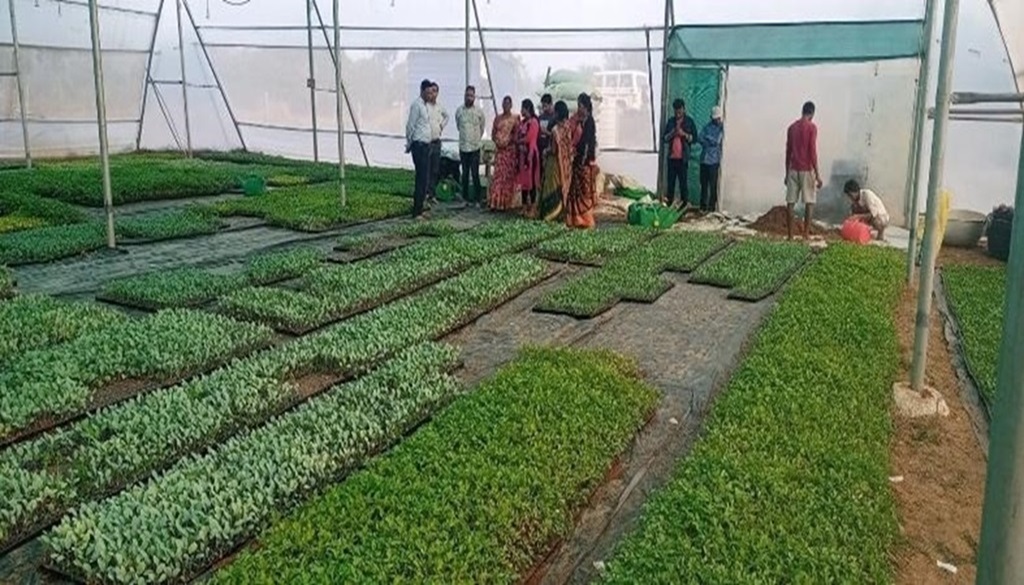Soilless Farming: Paving the Way for a Sustainable Future
<p>The realm of agriculture is evolving rapidly, with Soilless Farming emerging as a promising path forward. Farmers worldwide are embracing this innovative technique, but amidst this technological transformation, rural tribal farmers in Odisha remain tethered to traditional agricultural practices. These age-old methods require substantial investments and well-established irrigation infrastructure, leaving many of them struggling to secure a stable livelihood.</p> <p>For instance, until recently, the villagers of Katupada in the Saharapada block of Keonjhar district relied on traditional paddy cultivation methods, and the majority of its farmers were women. Unfortunately, these time-honoured techniques failed to provide them with the financial stability they deserved.</p> <p>In response to this challenge, CYSD, in partnership with Digital Green, initiated a ground-breaking project to introduce Soilless Farming to these women farmers. In 2022, they established a state-of-the-art soilless poly house nursery covering 40 square meters of land with a seedling capacity of 1.5 lakhs. This nursery was established to benefit the farmers of the 'Saharapada Women Farmer Producers Company.'</p> <p>In Soilless Farming, instead of traditional soil, a mixed-growth medium comprising vermicompost, coco peat, and perlite/vermiculite in a 1:1:0.25 ratio is used for cultivation. Adopting this technique offers several advantages, including enhanced control over plant nutrition and improved water efficiency, resulting in faster growth. Now, the women farmers of Katupada can cultivate off-season vegetables such as cauliflower, capsicum, chili, hybrid brinjal, and bitter gourds within a shorter timeframe, fetching significantly better prices in the market.</p> <p>Hemlata Mohanta, a member of the Board of Directors of the Saharapada Farmer Producers Company, expresses her delight, saying, "As we observed the cultivation of both paddy and vegetables through the soilless nursery, we found out that vegetable cultivation through this technique is more profitable. We were able to grow non-seasonal vegetables in a much shorter period and make a stable earning out of it. This initiative by CYSD has helped us in securing a better livelihood for ourselves."</p> <p>In the reporting year, a total of 2,36,256 saplings were sold, generating a turnover of approximately Rs. 4,00,000/-. Beyond Saharapada, similar poly houses have been established in Thakurumunda, Boipariguda, and Dasmantpur, benefitting a total of 2,113 farmers. Soilless Farming is not just a farming method; it is a pathway to empowerment and sustainable livelihoods for these women farmers in Odisha</p>
